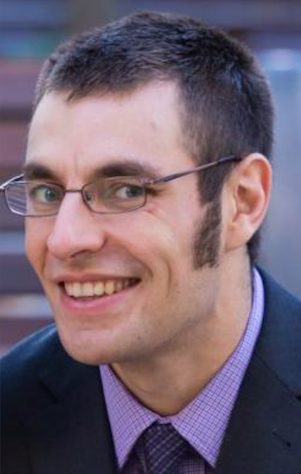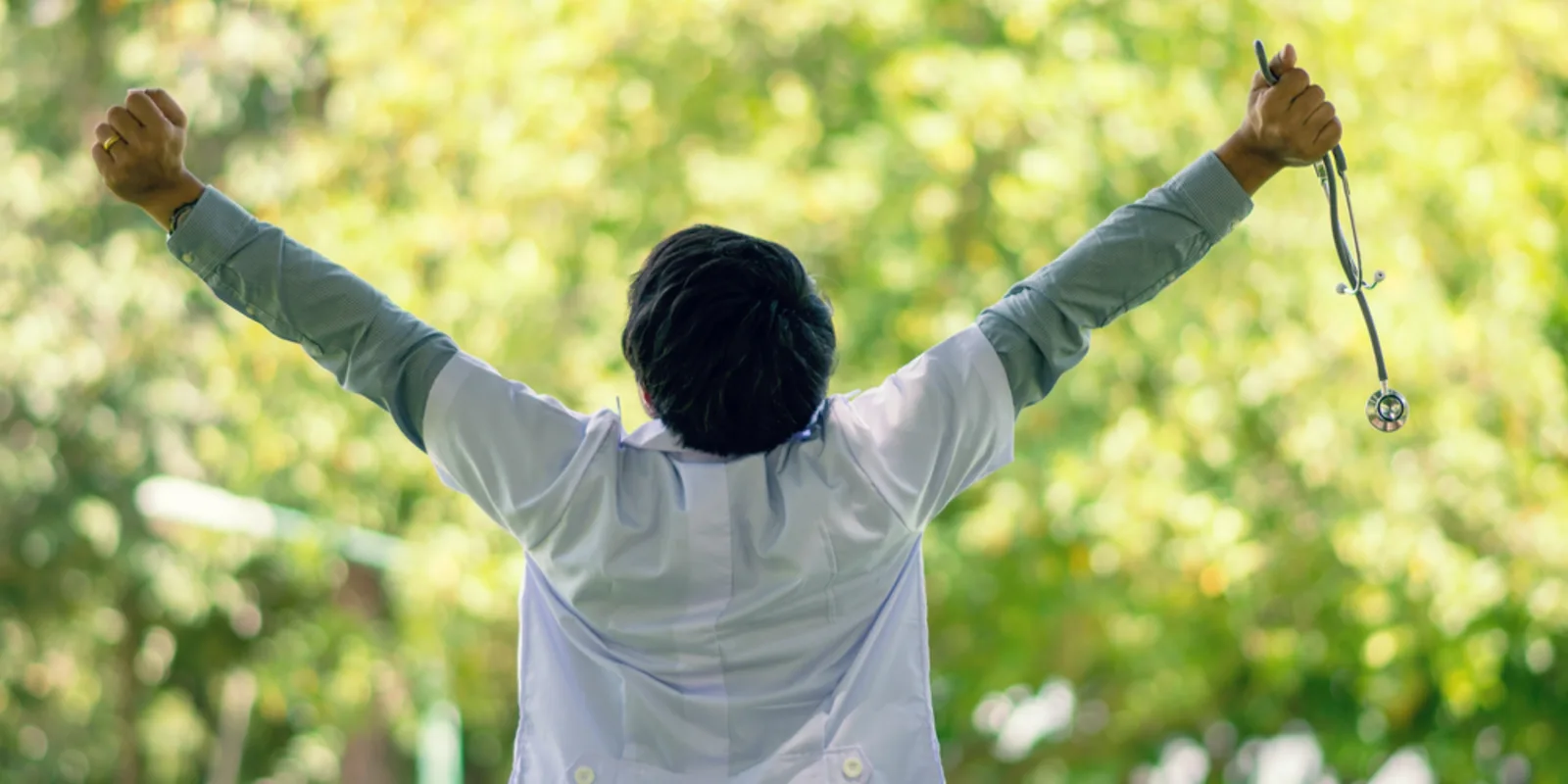Editor’s note: Dr. Khait presented two abstracts at the 2017 AAP National Conference in Chicago:
1. Mitigating Burnout in Residents via a Clinical Practice Tool
2. The Healthy Eating and Lifestyle Promotions (HELP) Program for Kids

There was a time when someone asked the Dalai Lama what surprised him most about humanity. The Dalai Lama replied, “Man. Because he sacrifices his health in order to make money. Then he sacrifices money to recuperate his health. And then he is so anxious about the future that he does not enjoy the present; the result being that he does not live in the present or the future; he lives as if he is never going to die, and then dies having never really lived.”
As a group, physicians certainly pursue more honorable things than simply money, but His Holiness hits the mark and he hits it hard. The high patient volumes, extended work hours, real or perceived threats of litigation, and an increase in complexity of electronic medical record keeping is making us unwell. The literature consistently demonstrates that physicians tend to be sicker than matched controls from other professions. For instance, they have twice the prevalence of depression, and each year 300–400 take their own lives. That makes me feel kind of sick.
On the flip side, we tend to be a psychologically resilient population, and let’s be honest, we’re bright, intelligent, and tend to have good awareness. So guess what? These are all good prognostic indicators for success. Now it’s time for a quick self-reflection.
Remember Maslow’s hierarchy of needs from preclinical behavioral science class? Though not without its criticisms, it is generally a well-accepted theory that has been built upon for more than fifty years. For instance, at the base, that’s right the very base, lie your physiological needs: sleeping, eating, and a good balance of exercise. If you cannot satisfy your own needs, how are you supposed to move upward and practice the altruism that likely brought you into medicine in the first place? You see, self-care is not just compatible with altruism; it is a necessary step towards it.
As physicians, we often have the ability to work in different settings, and sometimes, over the years, even customize our individual professional interests and responsibilities. So can work, in a sense be a particular pathway to wellness? As a pediatrician, I feel that my work feeds my soul. I love connecting with families and I love seeing children smile. I try to make every encounter patient-centered and I try to enter the moment as a snapshot in time. I ask myself, what are a few things in this encounter that I can make this family’s life better? What can I learn about them? Sometimes, this primarily involves active listening. Of course, being in academic medicine, I tried to take what I knew felt right about my clinical practice and decided to test a hypothesis.
You see, in addition to physician wellness, a general interest of mine is using educational practices as a tool to empower others to make positive changes. At Loma Linda University, I was able to test my hypothesis that patient-centered care via meaningful communication can foster wellness within our resident physicians. We are currently still in the process of collecting our final data but the results are very promising as far as learner satisfaction and having an effect on burnout are concerned.

In summary, I have found wellness, personal growth, and clinical practice, to be blending landscapes which all exist in a fascinating state of flux. As such, I would like to leave you with a set of broad personal practice tips that might help you in your journey of attaining and maintaining a state of well-being:
- Don’t be afraid to set goals for yourself. Bruce Lee, one of the most accomplished modern martial artists, has been known to say that, “Goals are often not intended to be reached, but instead, to be aimed at.” I take this to mean that you shouldn’t be entirely set on reaching an intended destination if perchance you end up at a more beautiful one. Don’t be afraid to pivot. Sometimes using an iSMART mnemonic can help, that is making sure that your goal is inspiring to you, specific, measurable, achievable, relevant, and time-bound.
- Factor wind-down time as part of your daily routine. Whether this means talking to your spouse, singing to your child, reading a book or indulging in your favorite Netflix series, this can have a relaxing effect in the pre-sleep hours. Sometimes we need to consciously bring the cortisol, adrenergic tone, and inflammatory cytokines down. The mind, brain, and body are a powerful thing.
- Find your rock. For me, this is my wife, my daughter and even my in-laws. They are always there for me and we have each other’s back. Likewise, this can be a hobby or deeper recreational interest. For me, I have been practicing Brazilian Jiu Jitsu for almost 12 years continuously, and although on the surface it may appear to be a unilateral sport, it has been a means of fostering my physical, intellectual, social, emotional, and even spiritual growth.
- Strive for equanimity in your daily practice. Take even breaths and be cognizant of the movement of the wonderful organ within our chest which is the heart. Are you sweating? Are you speaking at the peak of inspiration? If you have not consciously tried to make these observations, then you may feel a bit awkward, but give it a try. Closely related to this is maintaining poise, balancing your steps, showing grace to others, and approaching your decisions more cognitively and less emotionally. I promise this will cut down the wear and tear that you might feel at the end of the workday and workweek.
- Consciously strive to maintain respectful relationships with your colleagues and coworkers. They may not always be friendships, but genuinely ask how others are doing, what is going on in their lives outside of work, and give them a glimpse of what is going on in yours. Also, when opportunities come up to spend time with others outside of work, take advantage, even if occasionally.
- Leverage and celebrate your strengths. You are a wonderful, unique, person. There are certain things about you and certain ways that you do things that nobody else in the world does as well as you. It’s true that often times the biggest overall gains can be made by targeting your weaknesses, but only you can play the game of life the way that you do it. Don’t be afraid to leverage your assets.
Albert Khait, MD, FAAP, is a faculty member in the Division of General Pediatrics at Loma Linda University as well as the University of California Riverside School of Medicine. He is also currently a Master of Education in the Health Professions (MEHP) Fellow at Johns Hopkins University. He can be reached at akhait@llu.edu.







